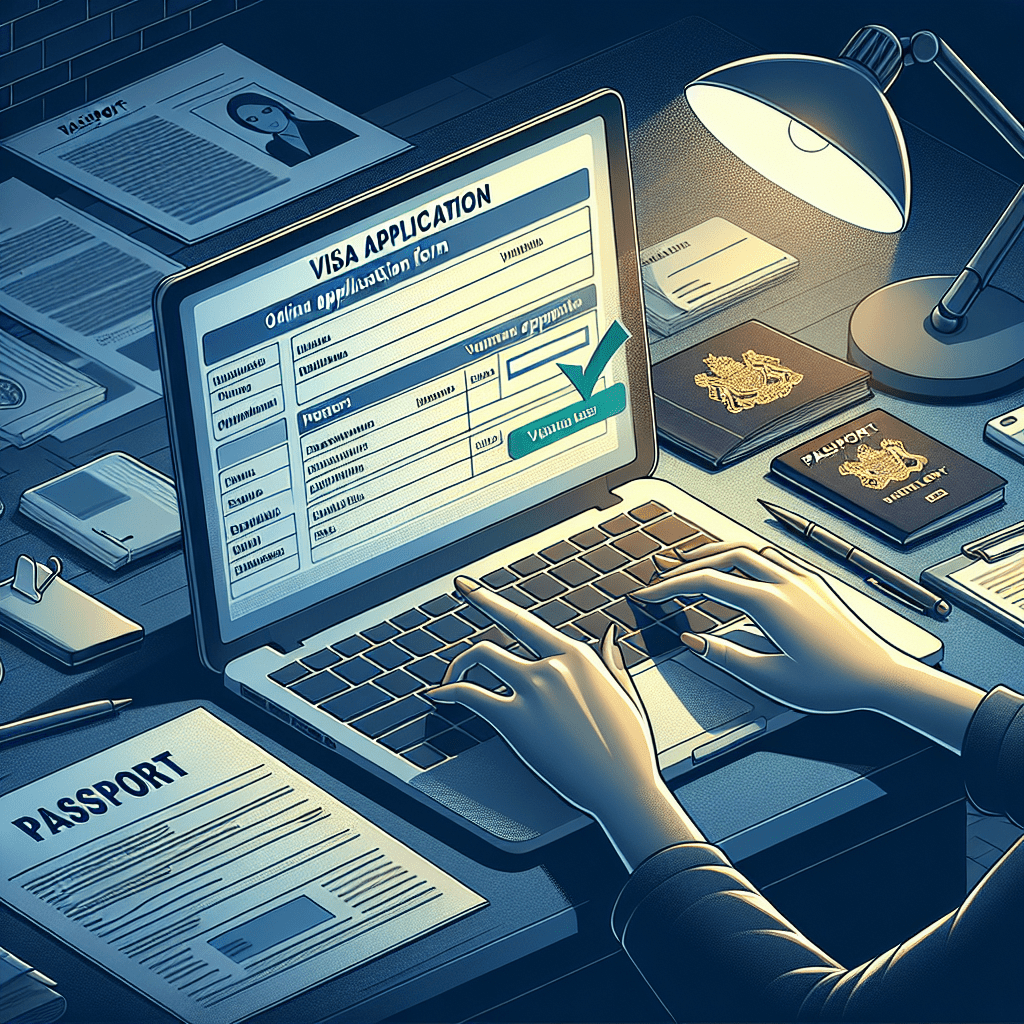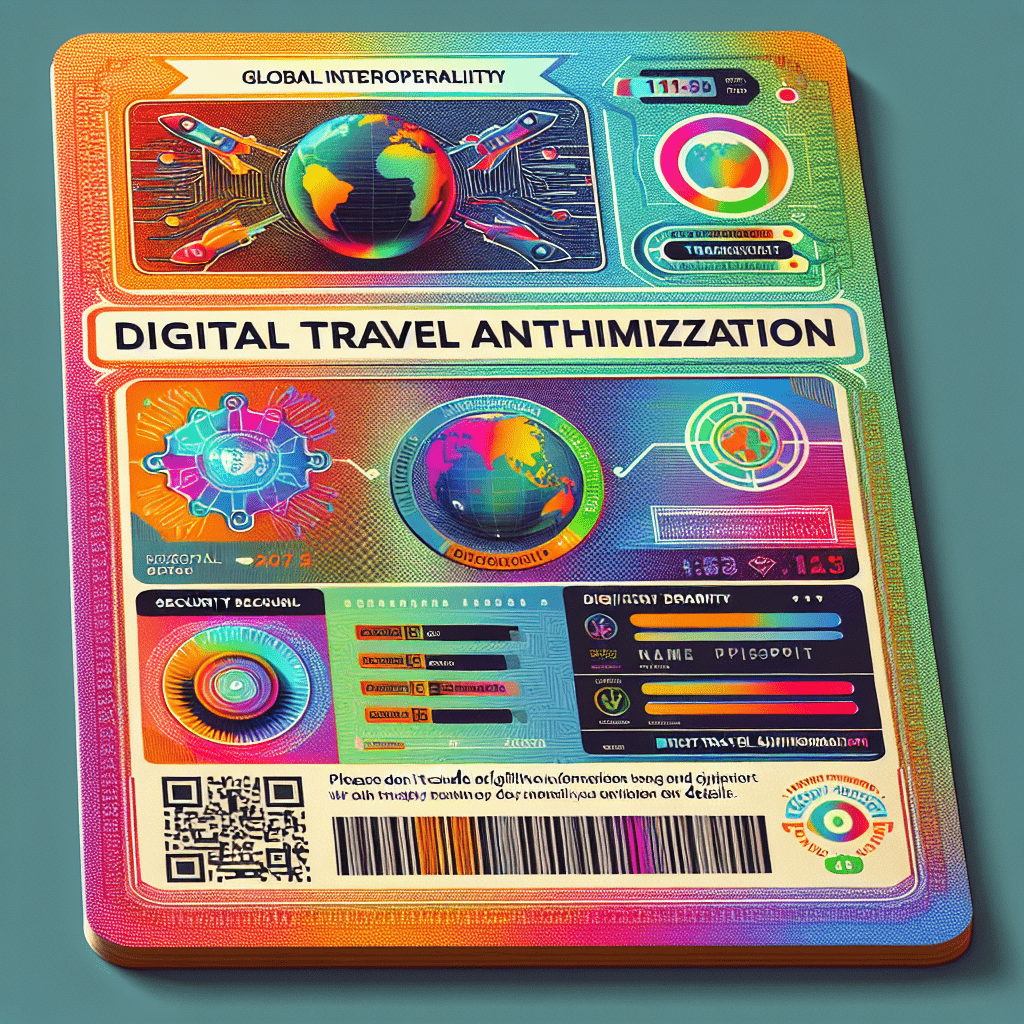E-Visa 2025: Benefits and Drawbacks for Travelers

In recent years, the concept of e-visas has revolutionized the way travelers approach international journeys. As global travel becomes increasingly digital, the demand for streamlined and efficient visa processes has surged. E-visas, or electronic visas, have emerged as a popular solution, offering a convenient alternative to traditional visa applications. With the advent of e-visa 2025, travelers are poised to experience a new era of digital travel authorization that promises to enhance the ease and accessibility of international travel.
E-Visa 2025 represents a significant step forward in the evolution of travel documentation. By leveraging advanced technology, this system aims to simplify the visa application process, making it more accessible to a broader audience. As travelers increasingly seek hassle-free experiences, understanding the implications of e-visa 2025 becomes crucial. This discussion delves into the benefits and drawbacks of this digital innovation, providing insights into how it may shape the future of global travel. By examining the advantages and potential challenges, travelers can make informed decisions about their travel plans in the coming years.

Benefits of E-Visa 2025 for Travelers
Convenience
The introduction of e-visa 2025 brings a new level of convenience to the travel experience. One of the most significant advantages is the simplified application process, which can be completed entirely from the comfort of one’s home. Gone are the days of lengthy visits to embassies or consulates; travelers can now access a user-friendly visa application portal online. This digital approach not only saves time but also reduces the stress associated with traditional visa applications.
Moreover, the e-visa processing time is considerably faster compared to conventional methods. With the integration of advanced technology, applications are processed more efficiently, allowing travelers to receive their digital travel authorization in a matter of days rather than weeks. This expedited process is particularly beneficial for last-minute travel plans, providing a seamless experience for those who need to make quick arrangements. The convenience of e-visa 2025 is a game-changer, offering travelers a hassle-free way to obtain the necessary travel documentation.
Accessibility
E-visa 2025 significantly enhances accessibility for travelers worldwide. By expanding the availability of e-visas to a wider range of countries, this system opens up new opportunities for global exploration. Travelers can now access destinations that were previously challenging to visit due to complex visa requirements. The future visa requirements under this system are designed to be more inclusive, allowing more people to experience the joys of international travel.
In addition to increased availability, e-visa 2025 also offers the potential for lower costs compared to traditional visa processes. The elimination of physical paperwork and the reduction in administrative overheads contribute to a more cost-effective solution for travelers. This affordability makes international travel more accessible to a broader audience, encouraging cultural exchange and global connectivity. By breaking down financial barriers, e-visa 2025 empowers more individuals to embark on their travel adventures.
Security
Security is a paramount concern for travelers, and e-visa 2025 addresses this with robust measures to protect personal information. The system employs digitally encrypted data protection, ensuring that sensitive information is safeguarded against unauthorized access. This level of security provides peace of mind to travelers, knowing that their data is handled with the utmost care and confidentiality.
Furthermore, the digital nature of e-visas reduces the risk of lost or stolen physical documents. Traditional visas often require travelers to carry important papers, which can be misplaced or fall into the wrong hands. With e-visa 2025, all necessary documentation is stored electronically, minimizing the chances of such incidents. This shift towards a virtual visa system enhances the overall security of the travel process, allowing travelers to focus on their journey without worrying about the safety of their documents.

Drawbacks of E-Visa 2025 for Travelers
Technological Barriers
While e-visa 2025 offers numerous advantages, it also presents certain technological barriers that can hinder its accessibility for some travelers. One of the primary challenges is the reliance on internet access and digital literacy. Not everyone has consistent access to the internet, particularly in remote or underdeveloped regions. This digital divide can prevent individuals from completing the online visa application process, thereby limiting their ability to travel internationally.
Additionally, the electronic visa process may encounter compatibility issues with certain devices or operating systems. Travelers using outdated technology or unfamiliar with digital platforms might face difficulties navigating the visa application portal. These technological barriers can create frustration and discourage potential travelers from pursuing their travel plans. Addressing these challenges requires efforts to improve digital infrastructure and provide support for those who may struggle with the transition to a virtual visa system.
Privacy Concerns
Privacy concerns are another significant drawback associated with e-visa 2025. The digital nature of the system necessitates the collection and storage of personal data, which raises questions about how this information is used and protected. Travelers may be apprehensive about the potential risks related to data breaches or unauthorized access to their sensitive information. Despite assurances of digitally encrypted data protection, skepticism about cybersecurity measures persists.
Moreover, there is concern about data sharing between governments and third-party entities involved in the digital immigration services. Travelers may worry about how their information is shared and whether it is used for purposes beyond the scope of the visa application. These privacy concerns highlight the need for transparent policies and robust security measures to build trust among travelers. Ensuring that personal data is handled responsibly and securely is crucial to addressing these apprehensions.
Limited Availability in Certain Regions
Despite the global push towards digitalization, e-visa 2025 may not be universally available or recognized. Some countries may not support e-visas due to various reasons, including technological limitations or policy decisions. This limited availability can pose challenges for travelers who wish to visit destinations that do not participate in the e-visa system. As a result, they may still need to navigate traditional visa processes, which can be time-consuming and cumbersome.
Furthermore, there can be significant variation in application processes and requirements across different regions. The e-visa eligibility criteria and future travel regulations may differ, leading to confusion and potential complications for travelers. Understanding these discrepancies and ensuring compliance with each country’s specific requirements is essential for a smooth travel experience. Addressing these limitations requires international cooperation and standardization to expand the reach and effectiveness of e-visa 2025.

Future Outlook of E-Visas Beyond 2025
Trends in Global Travel and Digitalization
The future of e-visas is closely tied to the broader trends in global travel and digitalization. As the world becomes increasingly interconnected, there is a growing reliance on digital processes and automation to streamline various aspects of travel. E-visas are at the forefront of this transformation, offering a more efficient and accessible way to manage future visa requirements. The shift towards digital solutions is expected to continue, with e-visas playing a crucial role in facilitating smoother border crossings and enhancing the overall travel experience.
As more countries adopt e-visa systems, travelers can anticipate a more seamless journey across international borders. The integration of digital travel authorization into the travel process reduces the need for physical documentation, allowing for quicker and more efficient entry procedures. This trend is likely to accelerate as governments and travel authorities recognize the benefits of digitalization in improving security and efficiency. The continued evolution of e-visas will be instrumental in shaping the future landscape of global travel.
Potential Developments in E-Visa Technology
The future of e-visas is not only about expanding their availability but also about enhancing the technology that underpins them. One of the most promising developments is the integration of biometric and AI technologies into the electronic visa process. By incorporating biometric data, such as fingerprints or facial recognition, e-visas can offer a higher level of security and accuracy in verifying traveler identities. This advancement can significantly reduce the risk of fraud and improve the overall reliability of the system.
Additionally, AI technologies can streamline the online visa approval process by automating routine tasks and analyzing data more efficiently. This can lead to faster processing times and a more user-friendly experience for travelers. The prospects for enhanced security and convenience are promising, as these technological innovations continue to evolve. As e-visas become more sophisticated, travelers can expect a more secure and efficient way to obtain their electronic travel permit.
How Travelers Can Prepare
As e-visas become an integral part of the travel landscape, it is essential for travelers to stay informed about evolving requirements and embrace digital innovation in travel documentation. Keeping up-to-date with e-visa policy updates and understanding the specific criteria for each destination is crucial for a smooth travel experience. Travelers should familiarize themselves with the e-visa eligibility criteria and any changes in future travel regulations to ensure compliance and avoid potential issues.
Embracing digital innovation also means being open to new technologies and processes that enhance the travel experience. As the world moves towards a more digital future, travelers who adapt to these changes will find themselves better equipped to navigate the complexities of international travel. By staying informed and embracing the advancements in e-visa technology, travelers can look forward to a more convenient and secure way to explore the world beyond 2025.

Conclusion
The introduction of e-visa 2025 marks a pivotal moment in the evolution of international travel, offering a blend of significant advantages and notable challenges for travelers. On the one hand, the convenience of a streamlined online visa application process, faster e-visa processing time, and enhanced security measures through digitally encrypted data protection are undeniable benefits. These features make travel more accessible and efficient, allowing individuals to explore new destinations with greater ease. The potential for lower costs and increased availability across a wider range of countries further underscores the transformative impact of e-visas on global travel.
However, the transition to a virtual visa system is not without its challenges. Technological barriers, such as limited internet access and compatibility issues, can hinder some travelers from fully benefiting from the system. Privacy concerns regarding the storage and use of personal data also persist, highlighting the need for robust cybersecurity measures. Additionally, the limited availability of e-visas in certain regions and the variation in application processes pose challenges that require careful navigation. Balancing these advantages and challenges is essential for travelers seeking to make the most of e-visa 2025.
As the travel landscape continues to evolve, it is crucial for travelers to stay informed and adaptable in navigating future trends. Keeping abreast of e-visa policy updates and understanding the implications of future travel regulations will empower travelers to make informed decisions. Embracing digital innovation and being open to new technologies will be key to successfully navigating the complexities of international travel. By staying proactive and informed, travelers can leverage the benefits of e-visa 2025 while mitigating its challenges, ensuring a seamless and enriching travel experience in the years to come.